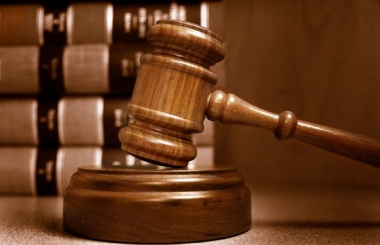I am studying in the third year of the State University of Economics and Technology.I specialize in contractual, economic and corporate law, in particular, I provide consultations and write articles.
An important place in criminal proceedings is occupied by the pre-trial investigation stage, during which evidence is collected, factual circumstances are established, investigative actions are carried out, etc. It is the pre-trial investigation stage that makes it possible to consider materials already during trial proceedings and determines the limits of such consideration. Pre-trial investigation, in accordance with the general provisions of the law, can be carried out in two forms: investigation and inquiry. This article will highlight the procedural features of inquiry as a form of pre-trial investigation of misconduct. In general, misdemeanors should be understood as a criminal offense, the main punishment for which is not related to imprisonment, and the fine does not exceed three thousand nmdg. Pre-trial investigation in relation to misdemeanors is carried out according to the general rules provided for pre-trial investigations, but with certain features.
Analysis of the procedural foundations of pre-trial investigation of misdemeanors:
Before the start of the pre-trial investigation, that is, before entering information into the ERDR, procedural actions cannot be carried out, but if it is necessary to clarify the circumstances under which the offense was committed, then it is permissible to select explanations, conduct information, obtain expert opinions and take testimony from technical experts. instruments and means, and also means and instruments of committing an offense or other things may be confiscated before entering information into the register (Part 3 of Article 214 of the Code of Criminal Procedure). The process of proof will be carried out by authorized persons through the collection, evaluation and verification of testimony, physical evidence, documents or expert conclusions, examination results, readings of technical instruments with the possibility of photography, video recording, etc. The detention of a person suspected of committing an offense is carried out in accordance with Art. 208 Code of Criminal Procedure. At the same time, it is provided that in case of refusal to comply with the request of an authorized person to stop the offense, or if he resists, leaves the place where the offense was committed, during the persecution does not comply with the demands of the authorized person, or is in a state of alcoholic or other intoxication, then he may be detained without an appropriate order from the investigating judge. In total, detention can last no more than 3 hours, but if a person commits actions provided for in paragraphs. 1-3 parts 1 tbsp. 298-2 of the Code of Criminal Procedure, then the duration of detention increases to 72 hours, and if the actions provided for in paragraph 4 of Part 1 of Art. 298-2 Code of Criminal Procedure, then no more than 24 hours. During the pre-trial investigation of misconduct, the investigator may carry out investigative actions (searches, inspection, interrogations, etc.), but undercover investigative (detective) actions are not allowed. The notification of suspicion is drawn up by the investigator with the obligatory approval of the prosecutor. When notifying the suspect, they must also inform him about the results of a medical examination or a specialist’s opinion. If the suspect finds disagreement with them, within 48 hours he can apply for an examination. The terms of the pre-trial investigation are determined by Part 3 of Art. 219 of the Code of Criminal Procedure, but it should be noted that the period of inquiry can be extended (up to a maximum of 30 days). As for precautionary measures, such varieties as house arrest and detention are not used as part of the pre-trial investigation of offenses.
Completion of pre-trial investigation of misconduct:
From the moment of arrest, the interrogating officer is given 72 hours, during which he is obliged to submit the collected materials and reports of suspicion to the prosecutor. The investigator informs the suspect and his defense attorney about the fact of the presentation. In turn, the prosecutor, within 3 days after the transfer of the above-mentioned materials by the inquiry officer, can: close the proceedings by making an appropriate decision, return the proceedings to the inquiry officer, file an indictment with the court, or direct the proceedings for pre-trial investigation in the form of a pre-trial investigation. If the prosecutor has chosen the option of filing an indictment or petitions in court, then the prosecutor provides copies of the collected materials to the person accused of committing an offense, his defense attorney and the victim.
Consultation with a criminal lawyer:
A criminal lawyer is an indispensable participant in the process who will provide comprehensive protection of the rights and interests of the suspect, accused or convicted person. A criminal lawyer will be present during procedural actions with the participation of his client, collect the necessary evidence, choose a defense strategy and represent the client’s interests throughout the proceedings, and will provide a legal evaluation. Legal analysis of the situation will help increase the likelihood of success in the case.





























